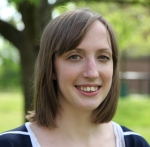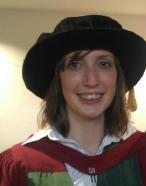Katherine Tonkiss
In a recent post for the LSE Impact of Social Sciences Blog, I argued with Catherine Durose that while the idea of delivering policy relevant research is positive, too often our claims to relevance do not deliver genuine impact. A couple of weeks ago I had the opportunity to revisit this issue when I spoke on the PSA Postgraduate Network impact panel, and here I reflect on some of the themes that emerged.
‘Impact’ is a response to the perception that academic work suffers from a relevance gap – that research is not relevant beyond academia and that therefore we should work to address this problem by producing research which has an impact on the wider world. This claim of a relevance gap has been critiqued on the grounds that it may not be true – many disciplines including feminism, and many policy-relevant academic departments (such as INLOGOV) have long had impact beyond their academic niche.
Despite this critique, the imperative to create impactful research is not necessarily something to be avoided. Not all research has to create impact, but it is a good thing that some research does, and maybe more research should do. Impactful research drives a democratisation of knowledge, enabling wider society to challenge and press for change.
There are, however, three key problems with the impact agenda.
1. Privatisation of knowledge
Impact is intended to democratise academic knowledge – to allow it to reach wider audiences. However, as Martin Eve has argued, the need for impact has arisen because of the privatisation of higher education which is privatising knowledge and therefore giving rise to the need for impact. Discussion at the PSA impact panel centred on how, for many, their biggest impact came from teaching but that this form of impact is, in their view, being curtailed. This is not an argument against impact, but rather the narrow way in which having an impact is understood.
2. Quantifying impact
Yesterday, Kate Dommett described in her blog post the various ways in which the impact of academic work is being measured. The problem with this is that, by demanding that impact must be quantifiable and suited to specific measures, we may miss quite a lot of the benefit and value of our research. Again, this is not an argument against impact, but rather what counts as impact. This is particularly evident in how we treat activities such as blogging and engaging with the media. As I argued with Catherine Durose, too often we count hits and retweets as measures of impact, rather than the less quantifiable and more long term dialogue that is opened up by engaging with these media. As such, we are performing claims to relevance rather than genuinely being relevant.
3. Doing research faster
Patrick Dunleavy has recently stated that research should be ‘shorter, better, faster, and free’, and that this should have implications for how research projects are constructed. Dunleavy wants information available to policymakers as quickly as possible and critiques social scientists still ‘trundling on’ doing three year studies and not getting results to policymakers in time for them to be relevant.
Rethinking how we construct large research projects is to be welcomed. However, the claim that this should mean producing research more quickly potentially undermines the quality and rigour of our academic work, as well as the depth that we are able to reach. Rather than thinking about how to shorten projects and deliver results more quickly, a more fruitful avenue may be to think about how to include those affected by the research in that research as it happens. This means co-designing research projects with participants and working with them closely throughout. In an article we wrote for Political Insight, Kate Dommett and I have described how we have taken this approach in the research project that we are currently working on.
Despite the three problems I have described, I do think that there is value in research which creates impact – that is, where it involves participants in the research process and aims to stimulate dialogue beyond the ivory tower. We need to avoid thinking about impact solely as fast research and performances of claims to relevance, but genuinely impactful research can have a positive effect.
Katherine Tonkiss is a Research Fellow in INLOGOV. She has research interests in normative and empirical questions surrounding migration, citizenship and identity, particularly in the UK. Her first book, Migration and Identity in a Post-National World, was published in 2013. Follow Katherine on Twitter @ktonkiss.



